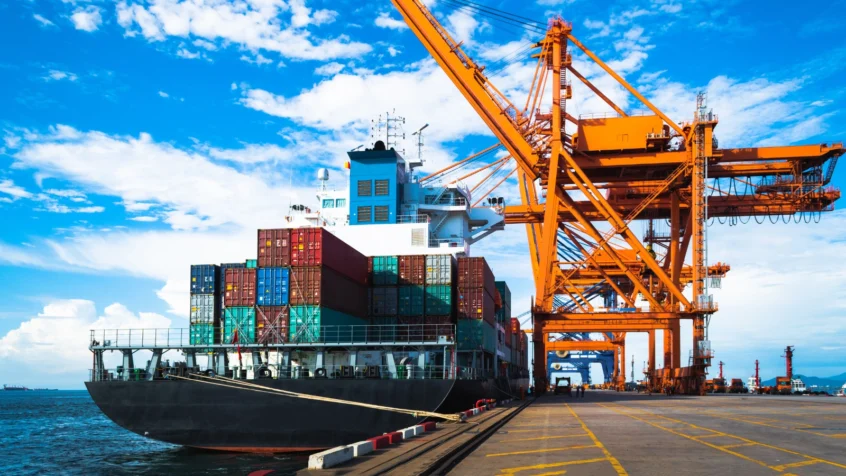In the dynamically evolving ocean container market of 2023, Hapag-Lloyd has stood as a beacon of both resilience and reality. The company’s annual report provides a candid look into the sector’s challenges, highlighting a significant 48.5% reduction in shipping revenues, down to 17.7 billion euros ($19.2 billion) from the preceding year.
Despite these hurdles, Hapag-Lloyd demonstrated commendable tenacity by slightly increasing its volume from 11.8 million to 11.9 million twenty-foot equivalent units (TEUs). This achievement is particularly notable against the backdrop of plummeting average freight rates, which fell from $2,863 per TEU to $1,500 per TEU, severely impacting profitability and margins.
The resilience of Hapag-Lloyd amidst these adversities is an indicator of the shifting paradigms in the global shipping industry. According to insights from Hapag-Lloyd’s CEO, Rolf Habben Jansen, shared with CNBC, the maritime sector is on the cusp of an early peak season. “I would also expect the peak season to start a little bit early,” Jansen said. “I also expect that there’ll be quite a number of people who will try to bring in their goods somewhere between June and August.”
If Habben Jansen’s predictions hold true, the industry will require strategic foresight to anticipate an early peak. This emphasizes the critical need for adaptability and forward planning in developing and implementing effective shipping strategies.
Traditionally, the peak season for ocean freight aligns with the later part of the year, culminating with Golden Week. However, the potential shift towards earlier months necessitates a reevaluation of logistics strategies to accommodate the changing demand dynamics, ensuring seamless operations from port to distribution.
Moreover, the interplay of containerized imports’ strong start in 2023 with the Lunar New Year’s timing nuances adds a layer of complexity to forecasting and planning for the upcoming peak season. This variability accentuates the need for industry players to remain vigilant and adaptable in their operational strategies, leveraging data and insights to navigate the evolving market landscape effectively.
As we prepare for the possibility of an early peak season in ocean freight, the lessons from the past year, combined with proactive measures informed by industry leaders like Hapag-Lloyd, will be instrumental in steering through the uncertainties and capitalizing on the opportunities that lie ahead in the global trade arena.
The Gemini Cooperation: New Horizons for Hapag Lloyd and Maersk
In the face of persistent challenges within the global shipping industry, such as diminishing freight rates and fluctuating schedule reliability, ocean carriers have been in search of innovative solutions to enhance operational efficiency and customer satisfaction. A landmark development in this quest is the formation of the Gemini Cooperation between Hapag-Lloyd and Maersk. This strategic partnership, announced in January, is poised to redefine the landscape of ocean shipping from next year onward.
The Gemini Cooperation emerges as a beacon of innovation and collaboration in the ocean freight sector. By combining forces, Hapag-Lloyd and Maersk aim to significantly reduce operational costs while simultaneously boosting customer satisfaction levels. Central to this alliance is the commitment to allocate approximately 290 ships collectively, a move that is expected to streamline operations and enhance service delivery across the board.
One of the most compelling aspects of the Gemini Alliance is its promise to achieve a schedule reliability rate exceeding 90%. This ambition represents a significant leap from the current global average, which, as calculated by Sea- Intelligence, stands at around 51.6%. Achieving such a high level of reliability will not only set a new benchmark in the industry but also address one of the most pressing concerns for ocean carriers and their clients alike: the consistency and predictability of shipping schedules.

